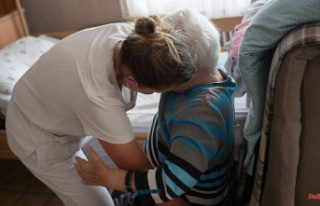Schwerin/Brussels (dpa/mv) - Mecklenburg-Western Pomerania's state government is further increasing its commitment in Brussels. Next Tuesday and Wednesday Prime Minister Manuela Schwesig and Europe Minister Bettina Martin (both SPD) will travel to the headquarters of the EU Commission for talks. Meetings are planned with Commission President Ursula von der Leyen (CDU) and Commission Vice President Frans Timmermans, as Martin announced on Wednesday in Schwerin.
According to the head of the MV representation in Brussels, Lars Friedrichsen, the delegation will comprise around ten people including security personnel. The Schwerin cabinet was already in October in the Belgian capital, where the EU Commission is based.
According to Minister Martin, the topics of the talks next week are the energy crisis, cross-border cooperation in the Baltic Sea region, which is to be expanded, and the distribution of EU money in the next funding period after 2027. There are efforts in Brussels to increase distribution in the Concentrate and centralize the EU, Martin said. You want to counter that. So far, the distribution of funds has been decentralized, "and from our point of view it should stay that way," said the minister. Locals know best how money can best be used. This should be made clear in Brussels. The debate on this is going on now.
According to Martin, MV is one of the regions that benefit most from EU money. In the past 30 years, around 30 billion euros have flowed into the Northeast. Around 6,000 companies and 30,000 jobs have been funded.
In the meantime, it has become known that the EU wants to make savings in the veterinary sector because the budget situation is currently tight. At the request of the German Press Agency, the Schwerin Ministry of Agriculture confirmed that it intended to reduce EU co-financing for certain measures. Emergency measures and surveillance programs for certain animal epidemics and diseases, including African swine fever, are affected. Livestock owners fear increasing contributions to the animal disease fund.












